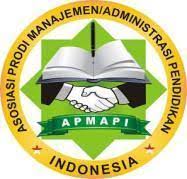Urgency Of Organizational Change Management In Islamic Educational Institutions In Indonesia
Abstract
Keywords
Full Text:
PDFReferences
Kholis, N. (2014). Manajemen Strategi Pendidikan (Formulasi, Implementasi dan Pengawasan). Surabaya: UIN Sunan Ampel Press. 2. Moropa, R. (2010). Academic Libraries in Transitions: Some Leadership Issues-A view Point. Library Management, 381-390. 3. Zed, M. (2008). Metode Penelitian Kepustakaan. Jakarta: Yayasan Obor Indonesia. 4. Asep Saefullah & Ahmad Rusdiana. (2014). Manajemen Perubahan. Bandung: Pustaka Setia. 5. H.L, M. (2020). Organizational change is a concept that states that an organization processes in a better direction driven by external and internal factors which will then create an innovation and improve the performance of members by the times. Journal of Cleaner Production, 247. 6. V., R. (2019). A theory of racialized organizations. American Sociological Review, 26-53. 7. Zainuddin Notanobun & Ribka Lemy Ririhiena. (2021). Organizational Development and Change along with the Reinventing in Education. JPPGI (Jurnal Pendidikan Profesi Guru Indonesia), 22-27. 8. M. Krogerus & R. Tschappeler. (2012). The Change Book. Profile. 9. Ps., A. M. (2019). Problematika Pesantren sebagai Lembaga Pendidikan Islam di Indonesia. TAWAZUN: Jurnal Pendidikan Islam, 225-233. 10. Wardi, M. (2013). Problematika pendidikan islam dan solusi alternatifnya (Perspektif Ontologis, Epistemologis dan Aksiologis). Tadris: jurnal pendidikan islam, 54-69. 11. Robiatul Awwaliyah & Hasan Baharuan. (2018). Pendidikan Islam dalam Sistem Pendidikan Nasional (Telaah epistimologi terhadap problematika pendidikan islam). Jurnal Ilmiah DIDAKTIKA, 34-49. 12. Sidiq, U. (2015). Urgensi Manajemen Strategik dalam Lembaga Pendidikan (Implementasi di MAN3 Yogyakarta). Edukasi: Jurnal Pendidikan Islam, 107-125. 13. Irwan, Nurhizah Gistiatuti & Rusdinal. (2021). Perilaku dan Pengembangan Organisasi Pendidikan. Jurnal Studi Guru dan Pembelajaran. 14. Zainal Asril & Abdul Halim Hanafi. (2021). Reconstruction of Islamic Institutions Education the 21st Hopes, Challanges, Paradigms and Roles of Arabic. At-Ta`lim Journal, 83-91. 15. Tornatzky L. & Fleischer M. (1990). The Proccess of Technology Innovation. Lexington: MA: Lexington Books. 16. R, A. (2014). Using the Technology-Organization-Environment Framework for Analyzing Nike’s “Considered Index” Green Initiative, a Decision Support System-Driven System. Journal of Management and Sustainability, 96-113. 17. S., B. (2013). Membangun Karakter Generasi Muda melalui Budaya Kearifan Lokal di Era Global. Premiere Educandum: Jurnal Pendidikan Dasar dan Pembelajaran. 18. F. Firmansyah, M. Taufik, B. Kejora& US. Karawang. (2021). Studi Analisis Pemanfaatan Whatsapp dalam Pembelajaran Daring Akidah akhlak pada siswa Madrasah Aliyah. Edukatif : Jurnal Ilmu Pendidikan, 2886-28997. 19. A. Shahroom & N. Hussin. (2018). Industrial Revolution 4.0 and Education. International Journal of Academic Research in Business and Social Sciences, 314-319. 20. Asmani. (2013). Kiat Melahirkan Madrasah Unggulan: Merintis dan Mengelola Madrasah yang Kompetitif. Yogyakarta: Diva Press. 21. Kurniawan, S. (2019). Tantangan Abad 21 bagi Madrasah di Indonesia. Intizar. 22. David, Fred. R., & David, F. R. (2017). Strategic Management: Concepts&Cases. http://www.pearsonmylabandmastering.com 23. Mercer, J., Barker, B., & Bird, R. (2010). Human Resource Management in Education Contexts, Themes and Impact (Leadership for Learning Series). Routledge. 24. Yang, B., Watkins, K. E., & Marsick, V. J. (2004). The Construct of the Learning Organization: Dimensions, Measurement, and Validation. David, Fred. R., & David, F. R. (2017). Strategic Management: Concepts&Cases. http://www.pearsonmylabandmastering.com Mercer, J., Barker, B., & Bird, R. (2010). Human Resource Management in Education Contexts, Themes and Impact (Leadership for Learning Series). Routledge. Yang, B., Watkins, K. E., & Marsick, V. J. (2004). The Construct of the Learning Organization: Dimensions, Measurement, and Validation.
DOI: https://doi.org/10.18860/rosikhun.v2i2.22182
Refbacks
- There are currently no refbacks.
Copyright (c) 2023 Abdul Fattah Wahab

This work is licensed under a Creative Commons Attribution-ShareAlike 4.0 International License.
Jl. Raya Ir. Soekarno No.34 Dadaprejo, Pendem, Junrejo, Kota Batu, Jawa Timur













